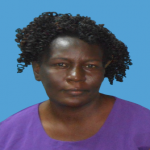
Project Summary
Project Title: INFLUENCE OF MODELLED TEACHING RESOURCES ON LEARNER ACHIEVEMENT IN COUNTING NUMBERS IN EARLY YEARS EDUCATION IN MUKURU KAYABA, NAIROBI COUNTY
ABSTRACT
The purpose of this study, Influence of modeled teaching resources on learner achievement in counting numbers in early year’s education in Mukuru Kayaba informal settlements, Nairobi County, is to determine the effect of modeled instructional resources on preschooler’s performance in counting numbers in Mukuru Kayaba. The study is anchored on the constructivist theory, whose proponent Jean Piaget, suggests that learners construct knowledge and meaning from their experiences and teachers act as facilitators and not main source of knowledge. In order to achieve this, the study is guided by the following objectives: to investigate motivation methodology, to determine the influence of modeled teaching resources on learner achievement in counting numbers, to establish the frequency of use of modeled teaching resources on learner achievement in counting numbers, to examine the influence of teacher attitude on modeled teaching resources in learner achievement in counting numbers and to determine learner performance in counting numbers using modeled teaching resources. In order to address the objectives, the study adopted a descriptive research design. Three public early year education schools were systematically sampled, while 48 preschool learners and 8 teachers were selected using random sampling technique. The research used pretest and posttest, classroom observation schedule and interview guide as research instruments to collect the data. The research instruments were first appraised by the supervisors for validity, then pilot tested for reliability. Data analysis and processing involved editing, coding and thematic categorization of data. Quantitative data was pooled for overall scores, ran through SPSS version 17 for frequencies and percentages and was then presented in tables. Qualitative data was however, summarized, thematically, arranged and presented in narrative form. The findings establish that modeled teaching resources are effective instructional tools for delivering mathematical concepts such as counting. All teachers (N=7, 100%) in Mukuru Kayaba use modeled instructional resources in their mathematical lessons. The major challenges towards the usage of modeled instructional resource are inadequate storage facility (N=6, 86%), small class room size (N=2, 29%), non-uniform enrollment (N=4, 57%), lack of time for developing modeled instructional resource (N = 3, 43%) and lack of class control (N = 3, 43%). The results further establish that the usage of modeled instructional resources has a significant effect on early year learner’s performance in counting numbers (r = 0.599, p-value = 0.009). The study recommends that the county governments in Kenya and other policy institutions on early year education should develop effective policies, support and training on the importance of modeled teaching resources towards preschooler’s attainment and mastery of mathematical concepts.
